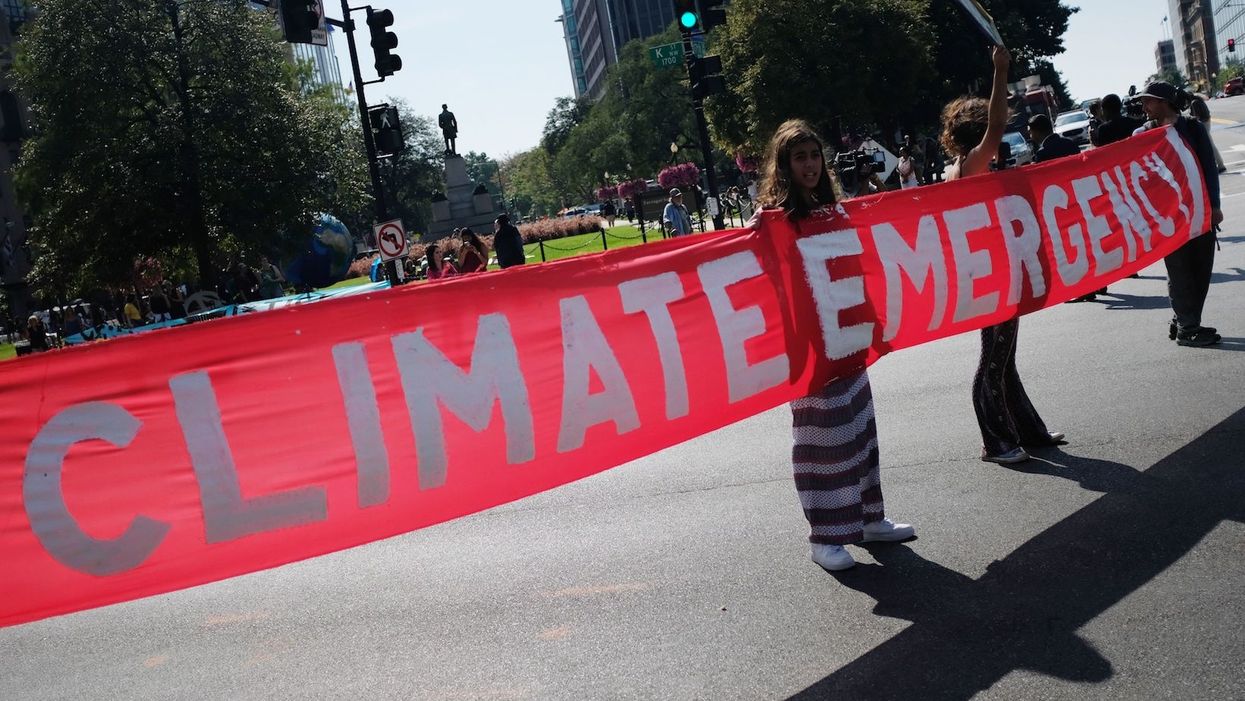
MANDEL NGAN/AFP/Getty Images

The effect of climate change hysteria
Half of voters under 35 years old believe it is somewhat likely that humanity will cease to exist in the next decade, according to a Rasmussen poll, revealing the extent to which climate change rhetoric has influenced the perspective of younger Americans.
Predictably, the fear of human extinction in the relatively near future is leading these voters to buy in to the necessity of extreme actions to combat climate change. According to the poll, 53 percent of 18-34-year-old voters believe it will require a larger commitment to overcome climate change than it took to fight World War 2.
The poll also highlights a connection between hyperbolic climate change rhetoric and a push by some Democrats toward socialism. Twenty-eight percent of the 18-34 demographic surveyed believed capitalism must be eliminated in order to protect the environmental apocalypse.
Climate activists and Democratic politicians have suggested that it is immoral to have children if the world is going to be uninhabitable in the foreseeable future—which is why 33 percent of the 18-34 voting group favors government limits on the number of children a family can have.
Overall, however, climate panic is not catching on. For example, 71 percent of voters as a whole find it unlikely that mass extinction will occur within the next 10-15 years.
Voters in urban areas are more likely than those in rural or suburban areas to believe the human race is nearing the end of its run, and senior citizen voters, who have seen numerous unfulfilled apocalypse predictions, are not particularly phased by this newest panic (only 12 percent think extinction in 10-15 years is somewhat likely).
As Jazz Shaw wrote for Hot Air:
Older people are probably more likely to brush this off because we've lived through a variety of claims that humanity was about to be wiped out. They generally come along every decade or two. I'm old enough to remember when global cooling was going to kill us all as a new ice age rushed in. Then there was the threat of a nuclear war. Later came the Y2K bug.
And for some reason, a bunch of people believed that the Mayan calendar predicted the end of the world Dec. 21, 2012. As it turned out, the only we wound up getting around that date was a second term for Obama. (Arguably pretty bad, but humanity still soldiered on.)